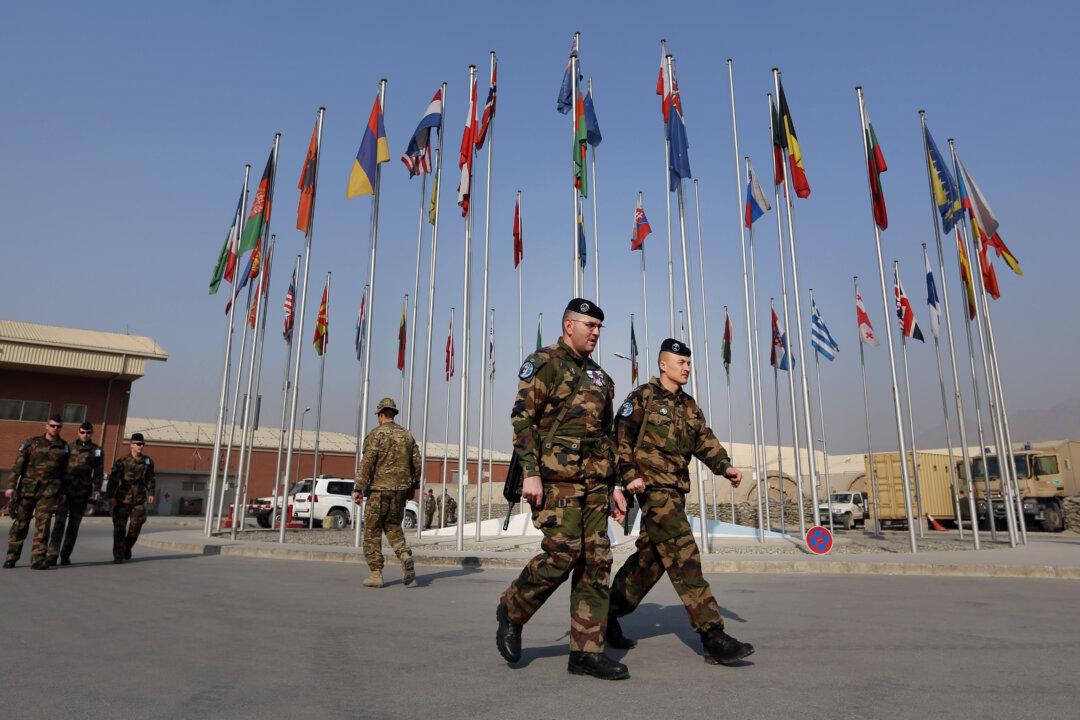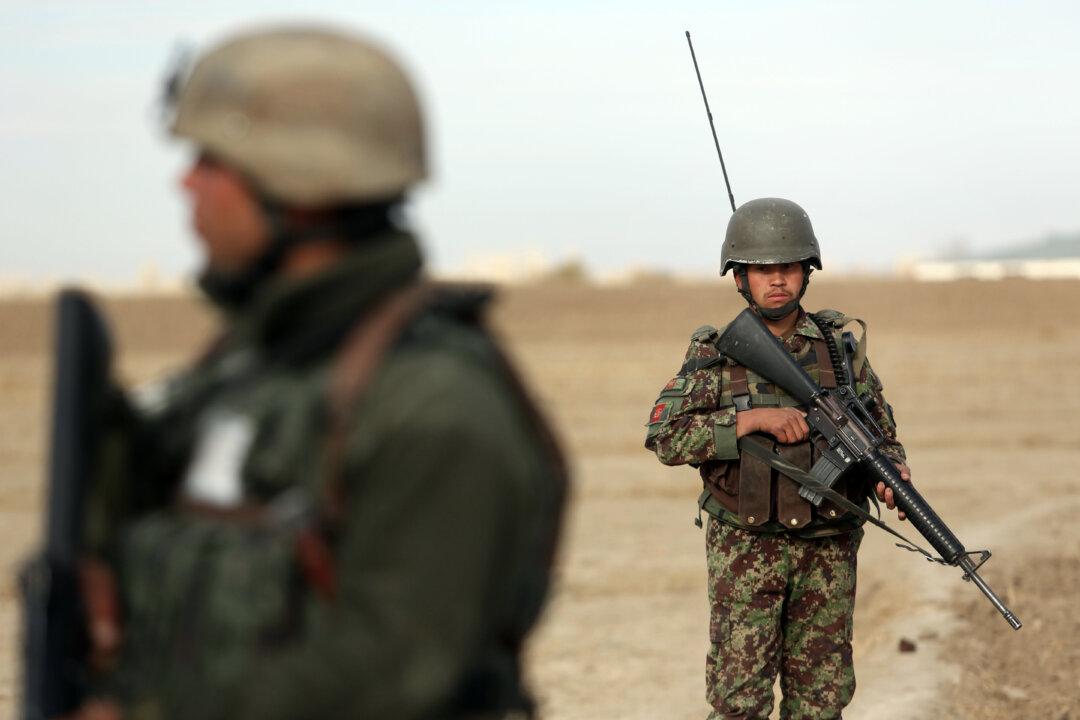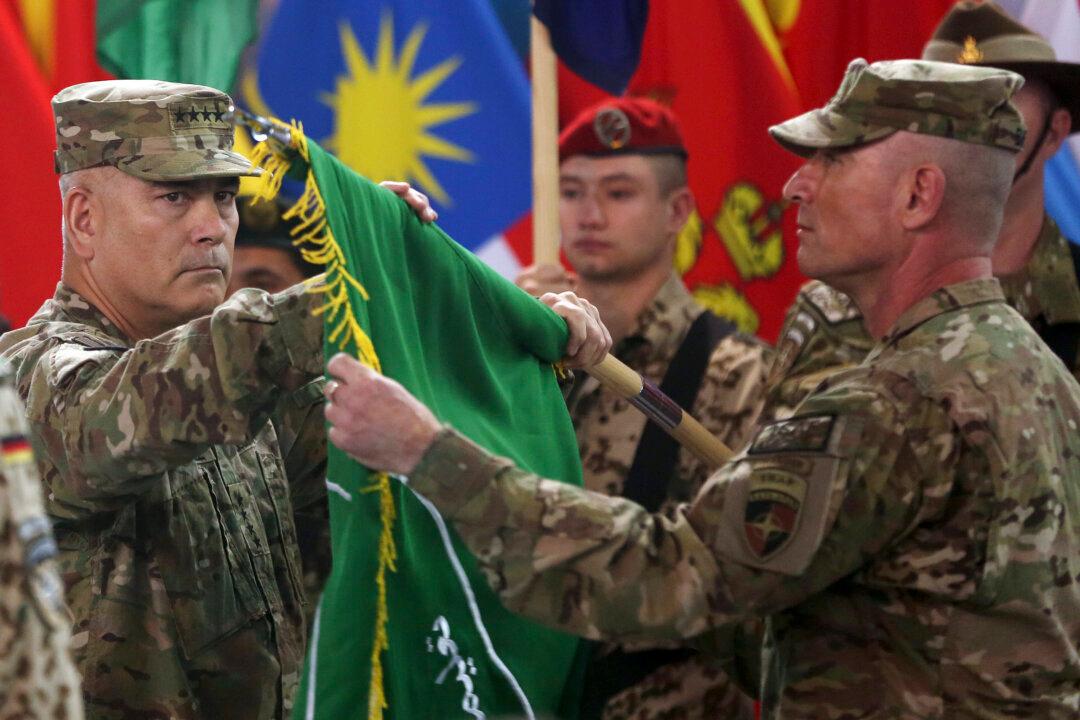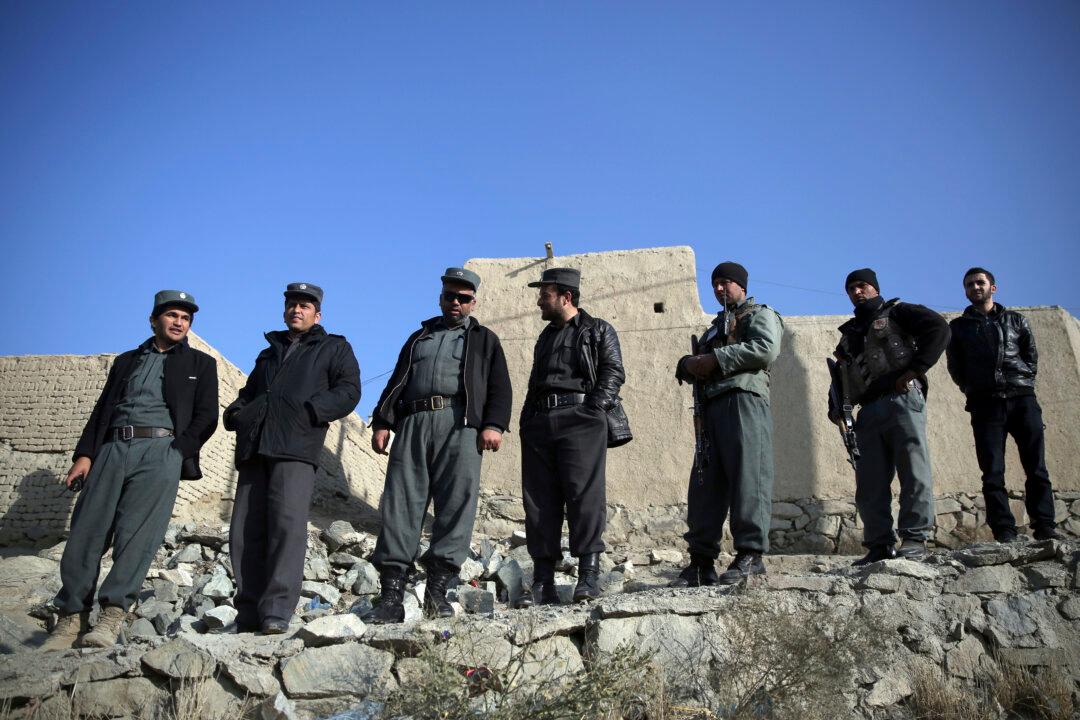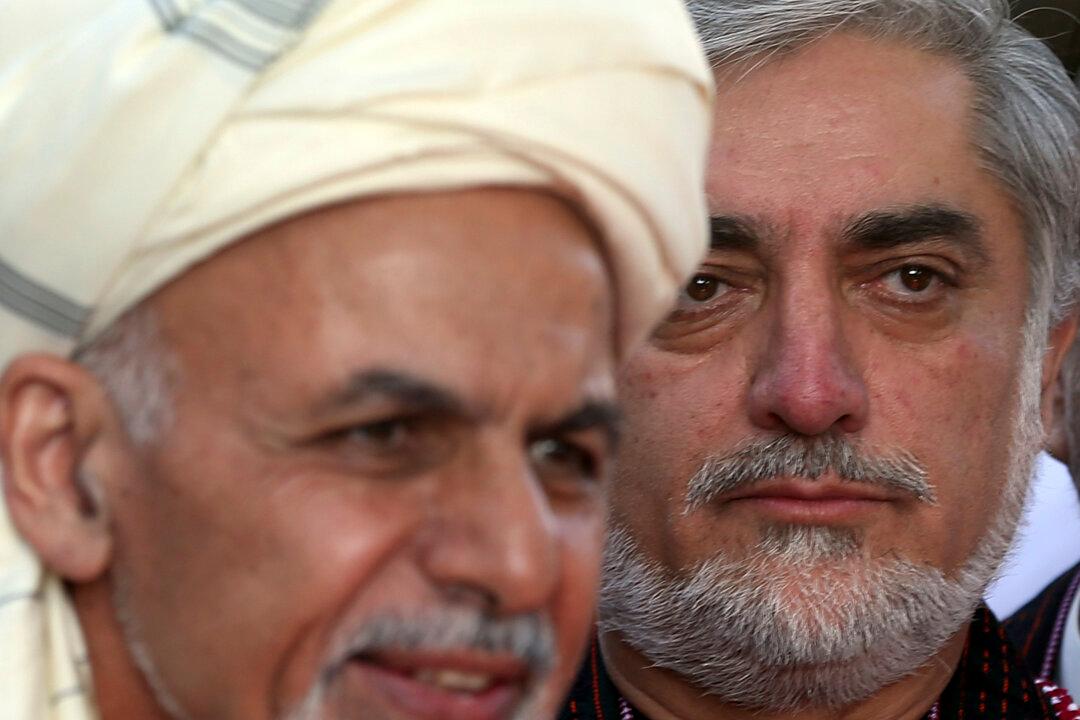KABUL, Afghanistan—Afghanistan ended 2014 with a mixture of violence and hope on Wednesday, as a Taliban attack was thwarted, a policeman gunned down his comrades and one of the country’s leaders said he had convinced hundreds of insurgents to lay down their arms and support peace efforts.
Wednesday marked the final day of the U.S. and NATO’s 13-year combat mission, which began with the invasion that overthrew the Taliban after the Sept. 11 attacks. The attacks were carried out by al-Qaeda, which at the time enjoyed safe haven in Afghanistan, where the Taliban ruled according to a violent interpretation of Islamic law.
Afghanistan’s own 350,000-strong forces will officially take responsibility for security starting Thursday. The insurgency has been testing the resolve of the army and police, who officials say are holding their ground even as the number of attacks increases and casualties soar.
This year was the deadliest of the war for government forces and civilians, with around 5,000 Afghan soldiers and police killed, officials have said. An estimated 10,000 civilians have been killed or wounded, the highest annual toll since the U.N. started keeping figures in 2008.
In much of the south and east, government forces are facing off against the Taliban without the assistance of coalition air support or medical evacuations. They have taken heavy casualties but have thus far prevented the Taliban from seizing large swaths of territory. Interior Ministry spokesman Seddiq Seddiqi said the insurgents had “failed to capture even one district.”
Afghan forces may also receive a boost from warming ties with neighboring Pakistan. After the school massacre in the Pakistani town of Peshawar earlier this month -- in which more than 140 people were killed, mainly children -- the two U.S. allies vowed to work together to combat insurgents on both sides of the porous border.
President Ashraf Ghani, who took office in September after a contested election, has said he wants to bring peace to his country after more than 30 years of continual war, and has bolstered ties with China, Pakistan and Saudi Arabia as part of an effort to isolate the Taliban and bring them to the negotiating table.
First Vice President Gen. Abdul Rashid Dostum said Wednesday that he had reached an agreement with some 300 Taliban fighters in the northern Jawzjan province to lay down arms.
“All the people who oppose the government should support the government and join in the peace process,” he said in a statement.
The fighting continued elsewhere in the country, however. In the eastern Nangahar province gunmen shot dead a policeman and two civilians after security forces stopped the car and motorcycle in which they were traveling, both of which were loaded with explosives. Provincial police chief Gen. Fazel Ahmad Sherzad said police suspected that they were on their way to attack government offices in Batikot district, near the Pakistani border.
In central Uruzgan province, also a hotbed of insurgent activity, a policeman killed three of his fellow officers and wounded another five while they ate dinner on Tuesday, said the governor’s spokesman, Dost Mohammad Nayab. The gunman fled after the shooting, he said, adding that the motive of the attack was not yet known.
From The Associated Press. AP writers Amir Shah in Kabul and Mirwais Khan in Kandahar contributed to this story.
